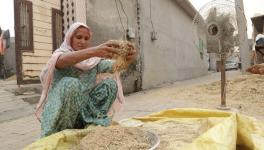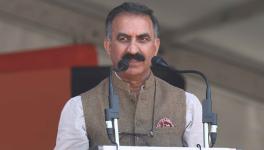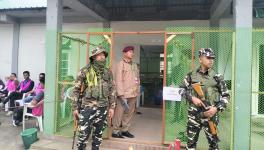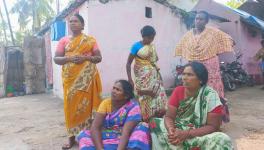Chhattisgarh: HC Denies Dignity in Death to Christian Pastor
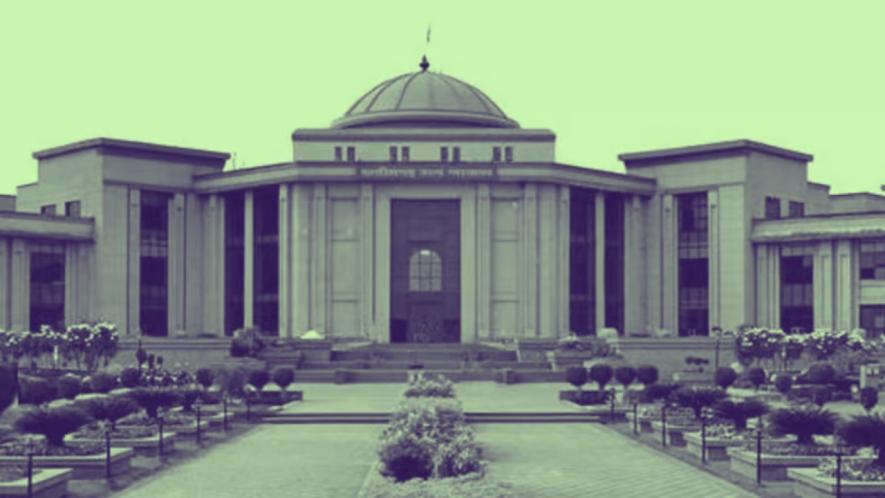
The judgment of the Chhattisgarh High Court in the case of Ramesh Baghel versus State of Chhattisgarh & Ors is one that raises some level of concern.
The facts in a nutshell are: the petitioner was a Christian belonging to the Mahra caste. The community has been classified as a Scheduled Caste after the Constitution (Scheduled Castes) Order Amendment Act, 2023. The petitioner and his family are long-time residents of a village called Chhindawada in Chhattisgarh.
A snapshot of the petition was that the father of the petitioner, Subhas Baghel, who was a pastor in the village, passed away on January 7. In the village the petitioner's family hails from, there is a common graveyard. In that graveyard, an area has been orally allocated to members of the Christian community.
On his father's passing, the petitioner attempted to perform his father's last rites in the common graveyard where the petitioner's aunt and grandmother were also buried.
On his father's passing, the petitioner attempted to perform his father's last rites in the common graveyard where the petitioner's aunt and grandmother were also buried.
However, the villagers created trouble and threatened the petitioner with grave consequences. The petitioner tried to bury his father in his own private land. The villagers opposed this as well as they had an objection to any Christian being buried in that village.
As the situation turned violent, around 30–35 police personnel arrived in the village. They tried to pressure the petitioner to take the body out of the village and bury it elsewhere and threatened legal action against him if he proceeded to bury the body in the village.
The petitioner was left with no alternative and approached the high court seeking a direction that he be permitted to bury his father in the village and also asked for police protection to protect him from the villagers.
The high court has dismissed the writ petition. It has placed reliance on a certificate issued by the gram panchayat’s sarpanch, signed by all the panchas, that there are no separate burial grounds for Christians in that village and on that basis the high court has said that the petitioner cannot bury his father in that burial ground.
This is despite the fact that the burial ground is common and past deceased relatives of the petitioner are buried there. The state said that since no separate burial ground is available for the burial of Christians in that village, the body could be buried in the village of Karkapal which is 20–25 km away. Karkpal has a Christian burial ground.
Finally, the court ruled: “As submission of learned counsel for petitioner and claim of the petitioner is that he wants to perform funeral rites of his father according to Christian religion, therefore, considering the fact that burial ground or graveyard of Christian community is available in nearby area, it will not be proper to grant relief as sought for by petitioner in this writ petition, which may cause unrest and disharmony in the public at large.”
The high court erroneously relies on a full Bench of the Madras High Court in Jagadheeswari versus B. Babu Naidu. The facts of that case in Madras were wholly different. In that case, a person had buried someone on private land which was not designated as a burial ground by the panchayat. The question did not involve access to a common burial ground or whether the gram panchayat could change the character of a burial ground to the exclusion of a community.
This judgement is bad in law. When the common graveyard clearly has been used to bury Christians in the past in the designated area, the certificate from the gram panchayat would amount to the gram panchayat changing the status quo. In such a case, the change would have to be tested under Article 14. If a common graveyard is suddenly turned exclusive to one community, that would amount to a violation of Article 14 on the face of it.
Further, the police, instead of protecting the petitioner here, threatened him with legal action and pressured him to give up his rights. Yes, there was a violent incident, but that does not mean the state abdicates its duty to ensure the protection of fundamental rights.
If there is a custom and a practice of a part of the graveyard being kept for Christians, suddenly directing that Christians not be buried anywhere in the village would be a violation of Article 14 on the face of it.
The high court, by telling the petitioner to bury his father 20–25 km away to avoid causing “unrest and disharmony in the public at large” has essentially bowed down to the mob.
In doing so, it has further entrenched a division that admittedly from the judgment did not exist earlier. It defies belief that Christians are not permitted to use the graveyard when admittedly two of the petitioner's relatives were also buried in the same graveyard.
The gram panchayat also exists to serve the needs of all communities resident in the village. How can the gram panchayat get away with not designating a burial ground as an area for Christians in the village if there is one for other communities?
The high court let the gram panchayat walk. Instead of directing that the gram panchayat make arrangements for the burial of Christians who are residents of the village, the high court lets the gram panchayat force them to go 20–25 km away to bury their dead.
This Order of the high court amounts to an abdication of constitutional duty and is a catastrophic assault on the core values of our Constitution which require that all persons be treated with dignity in life and in death.
The high court, by telling the petitioner to bury his father 20–25 km away to avoid causing “unrest and disharmony in the public at large” has essentially bowed down to the mob.
A third-generation Christian family that has been living in the village now cannot bury its dead in that village. How can a writ court not just allow such an assault on the Constitution but grant it sanction via a judicial Order?
What is more, the petitioner belongs to a Schedule Caste. The actions of the villagers in requiring that the deceased be buried elsewhere smells of caste discrimination and it is a smell that cannot go away. It is Untouchability on the face of it, something that Article 17 of the Constitution abolished.
Further, a graveyard is a place of public resort and under Article 15(2)(b), no person may be denied access to these places on the grounds of religion or caste. That is the constitutional scheme of this country. This judgment does not reflect that constitutional scheme.
Instead, what this judgment does is empower mobs of people who seek to deprive religious and caste minorities of their fundamental rights. They are told by this Order that if they create enough of a law and order problem, the State will bow down to them.
The Order is not just incorrect on the face of it, but it also ends up enabling mobs to intimidate people and, quite frankly, amounts to a judicial sanction of a form of Untouchability.
The high court should have directed the panchayat to make space in the village for the burial of Christians if it was the panchayat's case that the old common burial ground was now suddenly exclusive.
Further, the high court should have asked why Christians could be buried there earlier and what suddenly changed. Instead, the high court wanted to avoid unrest and the poor petitioner would now have to go 20–25 km away and bury his father in a village to which neither the petitioner nor his father had a connection. The local community, whom the petitioner's father (who was a pastor) served, will have to travel to pay respects to their former pastor.
This judgment of the high court is a travesty of justice and only goes to show that in India today minorities cannot even secure the protection of their rights from our courts. That India has slowly descended into mob rule and this mob rule is affecting our judiciary.
The judiciary is supposed to be the guardian of our Constitution, when the judiciary does not fulfill its role, what hope do we have left?
Ajay Kumar is an advocate practising before the Karnataka High Court. The views expressed herein are purely personal.
Get the latest reports & analysis with people's perspective on Protests, movements & deep analytical videos, discussions of the current affairs in your Telegram app. Subscribe to NewsClick's Telegram channel & get Real-Time updates on stories, as they get published on our website.









